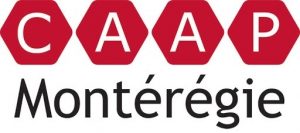Demystifying the rights of residential seniors
About leases in private seniors’ residences (PSR)
Published on April 6, 2023 by Andrée Rochon. Journal Le Canada Français, page B-6.
Most of us don’t know the difference between a lease in a certified seniors’ residence and a lease in an ordinary dwelling, not to mention leases in housing cooperatives, housing NPOs and others, which involve certain nuances.
The main difference between a lease in a private seniors’ residence (PSR) and a lease in an ordinary dwelling lies in Appendix 6 of the PSR lease. This introduces for part 1, the services included in the lease and for part 2, the services that the resident decides to retain for his or her personal needs or interests.
For the rest, everything is subject to the legislation set out in articles 1854 to 2000 of the Civil Code. It should also be remembered that the term “private seniors’ residence” is protected, and anyone using it must obtain a valid certification issued by the Centre intégré de santé et de services sociaux (CISSS) or the Centre intégré universitaire de santé et de services sociaux (CIUSSS) in the territory.
At the same time, this certification obliges its holder to comply with the Regulation respecting the certification of private residences for the elderly in Quebec.
It’s worth noting that more and more ordinary housing units include certain services in the lease, such as internet, swimming pool, gym and others, usually mentioned not in an appendix, but in the lease itself or in the building regulations.
DUAL OBLIGATION
A lease in a private seniors’ residence therefore entails a dual obligation for the landlord: to comply with the articles concerning leases in the Civil Code of Québec, and to comply with the certification regulations.
At a lesser level, homeowners are also obliged to comply with municipal by-laws and building codes. For the tenant, it’s imperative to obey the Civil Code and, to a lesser extent, municipal bylaws.
For example, a landlord must give 24 hours’ notice before visiting a tenant or carrying out a dwelling inspection, as required by the Civil Code. Certification, on the other hand, sets out the limits of the RPP in terms of staffing (depending on the category), tools for assessing loss of autonomy, delivery of services and so on.
OBLIGATIONS
The tenant also has obligations. According to the Housing Administrative Tribunal, he must pay his rent on the 1st of the month, keep his home clean and not disturb his neighbors. He or she must also comply with municipal bylaws concerning nighttime noise or audible noise, the maximum number of animals allowed in a dwelling unit (if not prohibited by the lease) and other regulations.
It’s important to remember that a lease is a rental contract, and like any contract, it comes with rules. It should be read and reread carefully, preferably BEFORE you sign it. In addition, the building by-laws, which form part of the lease, specify particularities to which the tenant must adhere, with some exceptions.
You can reach us at liaison@caapmonteregie.ca.



